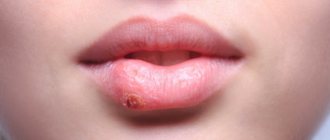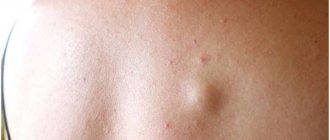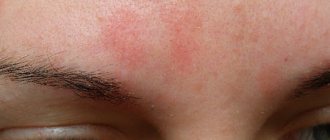Throughout the year, many people face the problem of peeling lip skin, chapping, and the skin on the lips can peel off. If your lips peel off on the inside, there are certain reasons for this that need to be eliminated in order to restore smoothness and evenness to the epithelium. The epidermis around the mouth is very delicate and sensitive, it is thin, and there are no sebaceous glands. Therefore, it is very important to provide him with proper care, since this area is most exposed to negative factors (bad habit of licking the skin, unfavorable climatic conditions, hard water). And if the skin constantly peels off from your lips, it is important to find out why this is happening.
general characteristics
Diseases of the oral mucosa can be infectious, inflammatory, viral or fungal. When an infection enters the oral cavity, the mucous membrane is the first to suffer. It can become inflamed, bleed, and become thinner. Conventionally, such diseases are classified as stomatitis. But besides stomatitis, there are many more problems that lead to deterioration in human health.
In almost all of the diseases described below, the symptoms will be similar: pain, rashes of various types, discoloration of the tissues of the oral cavity.
Oral diseases can be treated by a dentist, ENT specialist or therapist. When the first symptoms appear, you should consult any of these doctors for examination.
Lips peel from the inside
This problem is much less common than detachment of the upper part of the epidermis on the outside of the lips. However, it also brings severe discomfort and requires close attention. The skin in the mouth may peel due to:
- Allergic reactions (to new toothpaste, medications, food).
- Dental ailments (tartar, periodontal disease, gingivitis, caries, etc.).
- Previous burns (thermal or chemical).
- Serious diseases (autoimmune diseases, cancer, infections). With oncology, some area of disturbance may appear in the mouth, which bothers the person constantly (it does not hurt much, but does not heal). And infectious and autoimmune diseases usually manifest themselves as serious health problems, pain, large ulcers and other symptoms that are difficult to ignore.
The sudden appearance of skin peeling in the mouth is a reason to quickly consult a doctor. This is a rather atypical symptom that should not be ignored.
The most common oral diseases
Catarrhal stomatitis
Diagnosed in adults and children in most cases. Its development can be provoked by: insufficient hygiene, plaque and gum disease, oral dysbiosis, any diseases of the gastrointestinal tract (gastritis, colitis, duodenitis) and damage to the body by helminths.
It will be difficult for a person far from medicine to distinguish one disease from another. The symptoms of most of them are almost the same.
Symptoms of catarrhal stomatitis:
- Swelling of the oral mucosa;
- Whitish or yellowish coating;
- Increased sensitivity and soreness of tissues;
- Increased salivation;
- Bleeding gums;
- Bad breath.
Ulcerative stomatitis
A fairly serious disease of the oral mucosa. It can develop independently or as a complication after catarrhal stomatitis. Often this disease is diagnosed in people suffering from stomach ulcers or an acquired form of enteritis. In addition, the appearance of ulcerative stomatitis can be provoked by infectious, cardiovascular diseases, blood diseases and intestinal infections. Ulcerative stomatitis is active not only in the upper layer of the oral mucosa, but also spreads throughout its entire thickness. The symptoms are initially similar to catarrhal stomatitis, but then they intensify and are complemented by others.
Symptoms of ulcerative stomatitis:
- Increase in body temperature to 37.5 degrees;
- The appearance of ulcers on the inside of the cheek;
- Impotence;
- Headache;
- Painful enlargement of lymph nodes.
Aphthous stomatitis
It mainly develops due to weakened immunity, diseases of the gastrointestinal tract and allergies. In addition, viral infections or rheumatism can trigger the occurrence of aphthous stomatitis. It is worth noting that the exact causes of this disease are unknown to medicine.
Symptoms of aphthous stomatitis:
- The appearance of small red round ulcers on the oral mucosa. Over time, the center of the ulcer becomes grayish-yellow;
- General malaise;
- Temperature increase;
- Weakness.
Glossitis
Otherwise, a tumor (inflammation) of the tongue. Can be primary or secondary. It is often a companion to stomatitis of any form. The disease is dangerous because it can be complicated by abscessation of the tongue and the development of phlegmon of the neck. The chronic form of glossitis leads to the development of papillomatous, warty and other growths on the tongue. There are different types of this disease, which are similar in their main symptoms:
- Pain and swelling of the tongue;
- Red spots on the surface of the tongue;
- Redness of the pharynx, tonsils;
- Rash and sores.
Leukoplakia
Chronic disease of the oral mucosa. It hardly bothers the patient and has a blurred clinical picture. The causes of leukoplakia are traumatic in nature. It mainly affects older men. It is located on the mucous membrane of the cheeks, in the corners of the mouth and on the lateral surfaces of the tongue. The occurrence of this disease is provoked by mechanical damage to the mucous membrane: burns from too hot or spicy food, friction with the tops of broken teeth. The seriousness of leukoplakia is that it can degenerate into cancer, so the patient needs to consult an oncologist.
Symptoms of leukoplakia:
- Pathological keratinization of the epithelium;
- Growths are white or gray;
- Mild itching and burning.
Atrophic candidiasis
The disease affects newborn children, men who smoke, women of childbearing age and the elderly. As a rule, this pathology manifests itself in an acute form. The disease is difficult for patients to tolerate and significantly reduces the quality of life. A person experiences discomfort while eating, and is bothered by a burning sensation and itching.
Symptoms of atrophic candidiasis:
- Dryness and redness of the mucous membrane;
- Whitish coating in the folds of the mouth.
Lichen
This disease can affect not only the skin, but also the oral mucosa. The acute form lasts within a month, and the moderate-acute form lasts up to six months. In cases where lichen lasts for a long time, we are talking about a chronic form of the disease. In older people, oral lichen manifests itself in the form of erosions and numerous ulcers. In addition, rashes in the form of blisters may appear on the reddened mucous membrane. This disease mainly affects people who have a history of diabetes, weakened immunity, and various diseases of the liver and gastrointestinal tract. In some cases, there is a hereditary predisposition.
Symptoms of oral lichen:
- Plaques on the surface of the mucosa;
- Discomfort while eating;
- Itching and burning.
Dysbacteriosis
Most often, long-term antibiotic therapy leads to the formation of this pathology, which disrupts the healthy balance of microflora. If dysbiosis is not treated, it will spread further, disrupting the proper functions of the organs, completely affecting the tongue, tonsils and vocal cords. Most patients develop periodontal disease, which can lead to loosening and tooth loss.
Symptoms of dysbiosis of the oral mucosa:
- Unpleasant odor;
- Bleeding cracks in the corners of the mouth;
- Heavy plaque.
Cheilitis
The disease manifests itself not only from the inside, but also from the outside. The reasons lie in changes in hormonal balance, allergies, lack of vitamins, and the effect of fungal flora on the mucous membrane.
Symptoms of cheilitis:
- Inflammation of the lip border;
- Ulcers on the oral mucosa.
Why does the skin on my lips peel off?
Healthy lips are covered with fairly elastic skin, smooth, without cracks or flaking. Its condition can change under the influence of a variety of factors:
- Having a bad habit. With constant licking or biting, the skin of the lips is injured, begins to dry out and peel off. As a result, it may begin to peel off. Having peeled off, the skin will hang, and if you continue to bite off the peeling pieces of the epidermis, the situation can get very worse. The lips will become covered with bloody crusts and will hurt.
- Hypovitaminosis. Insufficient intake of various nutrients into the body is fraught with deterioration in overall health and can affect the skin of the lips. In addition, a person may be bothered by weakness, fatigue, dry skin in other parts of the body, etc.
- Impact of aggressive external factors. In particular, the skin can exfoliate and peel off the lips after burns (thermal or chemical). This problem is often faced by girls who neglect safety rules and open bottles of medicine with their teeth. Sometimes cosmetics can play the role of a provoking factor. Also, lips peel and peel when exposed to wind, frost and bright sunlight.
- Allergic reactions. Sometimes the skin can peel off after applying lipstick or gloss that is not very suitable. Allergic reactions are often accompanied by itching, increased swelling, etc.
- Dehydration. Insufficient fluid intake can worsen your overall health. But lips are often one of the first to react to dehydration. A crust appears on them, which soon cracks and begins to peel off.
- Mouth breathing. When the nose is stuffy, the lips become very chapped, causing the skin to peel off.
- Heilita. Most people know this disease under the name jam. Its development is associated with a lack of various nutrients in the body (in particular, vitamin B12); in addition, the disease can be provoked by various infectious lesions. When cheilitis occurs, the lips become pale, covered with cracks, and a bright red border forms around them (or on them). Sometimes the disease appears only on the lower lip, but most often it affects both.
The risk of peeling skin on the lips increases by an order of magnitude in the presence of nicotine addiction and regular consumption of alcoholic beverages. Some doctors claim that excessive intake of coffee and strong tea can also play an aggravating factor.
Eliminating peeling lips and dealing with skin peeling on them can only be done by identifying the causes of this problem. After all, if you simply moisturize your lips with lipstick or balm, they will still continue to peel.
Diagnosis of diseases of the oral mucosa
Modern medicine has a wide range of diagnostic tests to make an accurate diagnosis.
Only a doctor can give the correct classification of the disease. For this purpose, he can use the following methods:
- Mucosal smear for microscopic examination;
- Conducting allergy tests;
- Analysis for viral infections (herpes, tonsillitis);
- General examination to identify the primary disease.
Causes of cheilitis
Cheilitis is a polymorphic and multifactorial disease that can be triggered by infections, physical and chemical environmental factors, as well as internal characteristics of the body. Among them:
- constant exposure to the open air - inflammation and peeling of the lips occurs when chapped by hot or cold air, excessive insolation;
- the presence of chronic diseases with skin manifestations of symptoms - various types of dermatitis, psoriasis, lupus erythematosus, lichen planus, syphilis, etc.;
- allergic reactions of the body - mainly with food allergies;
- tissue irritation from regular exposure to chemicals, including medications (for example, nasal drops);
- various neurological disorders, severe stressful situations, depression, constant anxiety;
- endocrine abnormalities - primarily hyperfunction of the thyroid gland, diabetes mellitus.
Therapy for diseases of the oral mucosa
Prevention measures:
- Visiting the dentist twice a year to promptly identify and eliminate dental problems;
- Careful observance of local hygiene;
- To give up smoking;
- Avoiding too hot and spicy foods;
- Rinsing the mouth with disinfectant solutions and herbal decoctions;
Oral hygiene should be carried out regularly. Failure to comply with basic rules can provoke the occurrence of sore throat, problems with the gastrointestinal tract and other pathologies.
The health of the oral mucosa largely depends on the condition of a person’s teeth.
To successfully cure any disease of the oral mucosa, it is necessary to suppress the factors that influenced its development. If you suspect any problems in the oral cavity, you should contact a specialist. It is categorically unacceptable to get too carried away with self-medication and resort to non-standard methods of treatment. If you do not see a doctor for a long time, a minor problem can develop into a more serious one, lead to complications and worsen a person’s overall health. In addition, some oral diseases can develop into malignant ones. You should not put off visiting a specialist and expect the disease to go away on its own. Timely diagnosis and treatment will help avoid many problems in the future.
What to do
What to do if there is peeling or peeling of the mucous membrane on the inside of the lips? It is necessary to treat such a problem, depending on the cause that caused it. If the provoking factor is a deficiency of vitamin substances, it is recommended to undergo a course of treatment with multivitamin preparations (in particular, vitamin A and C play an important role). It is better for such medications to be prescribed by a doctor, since an excess of vitamin substances is no less harmful to the body than its deficiency.
If the cause is an allergy, it is important to identify the potential irritant. This could be a specific product, cosmetic, or drug. In this case, treatment consists of taking oral or topical antihistamines prescribed by a doctor. Additionally, it is very important to eliminate the allergen from the patient’s life.
In the presence of infectious processes, it is important to carry out timely and competent treatment prescribed by a specialist. If the problem arose under the influence of unfavorable climatic conditions, it is important to properly protect sensitive skin - before going outside, be sure to use a rich cream, hygienic lipstick or balm.
If there are diseases of internal organs, it is important to carry out their timely treatment. After which the unpleasant symptoms will go away on their own. If the mucous membrane suffers from dehydration, it is important to establish a drinking regime - drink at least one and a half liters of clean water during the day (this does not take into account liquid in teas, coffee or liquid dishes).










